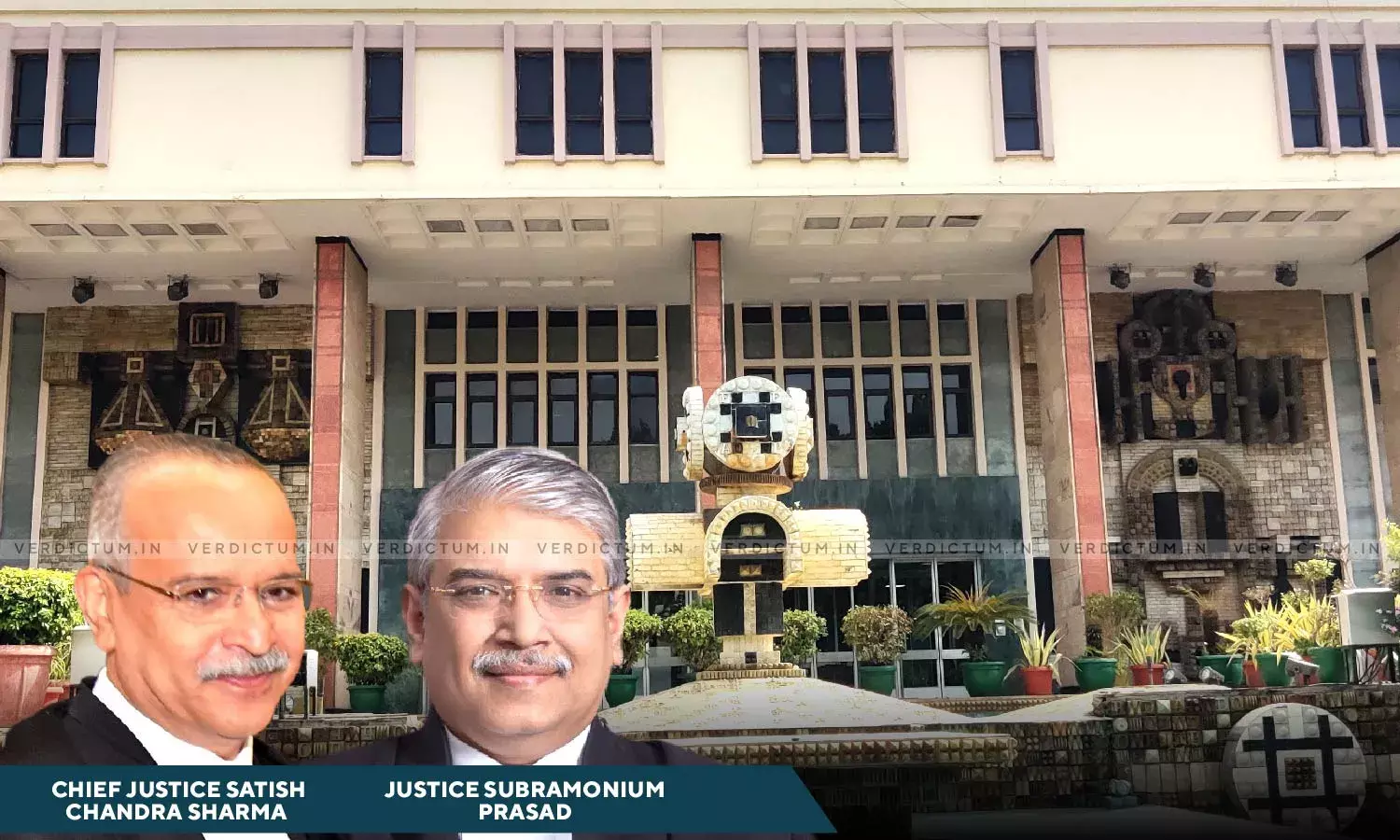Delhi HC Upholds Order Setting Aside Arbitral Award Directing ISRO’s Antrix Corp To Pay USD 562.5 Million To Devas

The Delhi High Court has recently upheld an order setting aside the arbitral award directing ISRO’s Antrix Corporation Limited to pay compensation amounting to USD 562.5 million to Devas Employees Mauritius Pvt. Ltd. for terminating a deal in the year 2011.
The Court said that the Apex Court while dealing with such a case has itself held that the Devas was incorporated for fraudulent purposes and its affairs were conducted in a fraudulent manner and hence the agreement from which the arbitration arose, was a product of fraud.
A Division Bench comprising Justice Satish Chandra Sharma and Justice Subramonium Prasad held, “It would be against the principles of justice, equity and good conscience to permit Devas to reap the benefits of the ICC Award, and permitting Devas to do so would amount to this Court perpetuating the fraud. … The principle of ―fraud vitiates all solemn acts‖ is applicable not only to the primary proceedings, but also to all collateral proceedings that arise out of the same facts and circumstances.”
The Bench observed that the act of fraud is an anathema to all equitable principles and every transaction tainted with fraud must be viewed with disdain by Courts.
“Permitting Devas and its shareholders to reap the benefits of the ICC Award would amount to this Court perpetuating the fraud. Such a view would be against all principles of justice, equity and good conscience”, noted the Court.
Senior Advocate Suhail Dutt appeared for the appellant/Devas while ASGs N. Venkataraman, Chetan Sharma, and Advocate Varuna Bhamral appeared for the respondents/Antrix.
Brief Facts –
An appeal under Section 37 of the Arbitration and Conciliation Act, 1996 was filed against the judgment passed by a Single Judge. A challenge to the ICC Arbitral Award passed in favour of Devas was preferred before the Single Judge. The said Single Judge, vide a judgment set aside the ICC Award under Section 34 of the Arbitration Act on the grounds that it suffered from fraud, and patent illegality and is in conflict with the public policy of India.
Antrix and Devas had entered a contract for the lease of Space Segment Capacity on ISRO/ Antrix S-band Spacecraft and the same provided for the lease to Devas of transponders on satellite GSAT-6. Neither the Department of Space/ISRO nor any other government agency was a party to the said contract and thereafter Antrix terminated the same which Devas refused to accept and hence claimed compensation as a result of which the Tribunal directed Antrix to pay USD 562.5 million to Devas.
The High Court in view of the above asserted, “Fraud is always viewed seriously by Courts and any act or conspiracy, of fraud or deception, done with a view to deprive the rights of others in relation to a property would render such a transaction void ab initio. A party which commits such fraud or deception cannot be permitted to reap its benefits, especially by taking advantage of the judicial process, including in subsequent or collateral proceedings, as doing so would result in the Court enabling the perpetuation of fraud. Such an interpretation would be absurd and would lead to disastrous outcomes.”
The Court said that the principle of “fraud vitiates all solemn acts” is a general principle and a special provision will prevail over the same.
“Even in instances where the subsequent proceedings or a collateral proceeding pertains to the application of a special provision on fraud, the factum of fraud having been established in a previous proceeding will affect all the transactions and proceedings which have been tainted with fraud”, observed the Court.
The Court held that the findings by the Apex Court, which is the highest Court of the land, could not have been ignored by the Single Judge and those findings would automatically become the findings of the Single Judge while considering an application under Section 34 of the Arbitration Act for which there was no necessity of a specific pleading.
“In view of the various Judgments of the Hon'ble Supreme Court interpreting Section 34 of the Arbitration Act, the amendments to Section 34 of the Arbitration Act and in view of the categorical findings of the Apex Court in its Judgment passed in Civil Appeal No.5766/2021, nothing prevented the learned Single Judge from relying on those findings and using them for the purpose of setting aside the ICC Award under Section 34 of the Arbitration Act on the ground that the agreement itself was a product of fraud and, therefore, the making of award is automatically induced by fraud and corruption”, noted the Court.
The Court further said that the Single Judge applied his mind to the amendment applications and has taken it into consideration while deciding the petition under Section 34 of the Arbitration Act and the issue as to whether the making of award was vitiated by fraud or corruption.
“The learned Single Judge has not made an error in setting aside the ICC Award on the grounds of fraud and it being in conflict with the public policy of India. Accordingly, the challenge to the Impugned Judgment by the Appellant, on the ground that the Ld. Single Judge could not consider the grounds of public policy and fraud under Section 34 fails”, the Court concluded.
Accordingly, the Court dismissed the appeal and upheld the order.
Cause Title- Devas Employees Mauritius Pvt. Ltd. v. Antrix Corporation Limited & Ors. (Neutral Citation: 2023:DHC:1933-DB)


